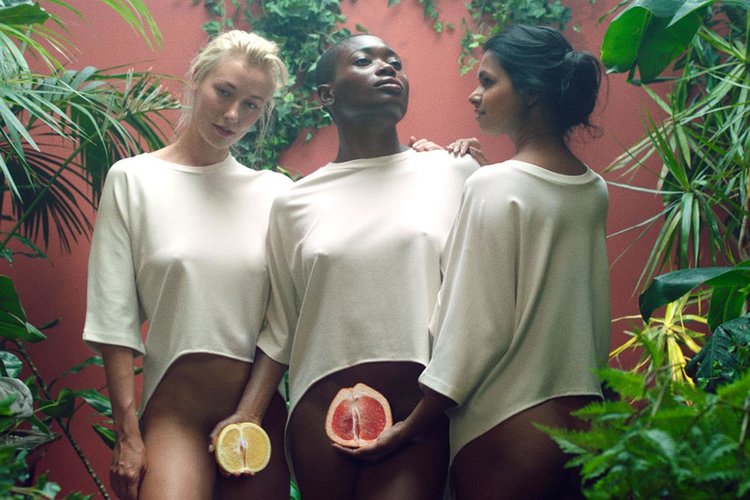Out-of-home advertising (OOH) — also known as outdoor media — is the marketing you see…
Breaking Taboos in Advertising: Censorship Need Not Apply
In our quest to be advertising pioneers, we always want to push that envelope, toe that line, blaze that trail, all while being truthful and honest in order to get our brand message across. So how taboo does content really need to be in order to get people talking, to raise eyebrows, and invoke change?
Marketers and creatives alike have found that being unapologetically honest – a perfect ingredient for being, and breaking, taboo – is not only good for change, but also good for business. It sells more products and creates a base of loyal brand advocates. More importantly, they get the conversation going about important, human topics such as menstruation, sexual activity, erectile dysfunction, and race that have otherwise been seen as inappropriate or just plain scary to talk about.
To us here at Curmudgeon Group, a taboo brand campaign has all the characteristics of what successful, creative ad campaigns should: thought provoking, engaging, with a willingness to talk about the important things we might not always be ready to broach on our own.
taboo in action
For women, brands such as Thinx and Libresse offer menstrual products while taking on a candid, honest, and frankly taboo approach to what the experience of having a period is really like.
Thinx, the brand known for period-proof underwear, famously plastered subway stations with ads ladened with heavy-handed double entendre imagery while Libresse, a Swedish brand of feminine hygiene products made a name for themselves not once, but twice with two stigma-shattering campaigns.
Making their mark in 2018 with #BloodNormal, Libresse showed the world that yes, it is indeed possible to talk about the reality of periods while portraying period blood in a realistic fashion. #BloodNormal is unapologetic and raw in the way it characterizes women in authentic, true-to-life situations. Tossing censorship out the window – specifically the Assorted TV Broadcast Authorities Worldwide statement that “The sight of period blood is unacceptable,” Libresse urges the public to view menstruation as a normal part of life because, well, it is.
Their highly successful follow-up campaign, “Viva La Vulva” celebrated the vagina as a whole with a message skewed toward the notion of self-love and acceptance. According to assistant director Alia Wilhelm, the ad’s message is to not just embrace the vulva, but to embrace yourself as you are.
The Thinx and Libresse ad campaigns are important because even though their products may be different and their ads emit different tones and themes, their messages of normalizing and embracing the female experience from periods to vulvas to the self are the same.
Astroglide self lubricant revealed their “Life is Too Short to Fake It” brand campaign during this year’s New York Fashion Week as an ode to female orgasms. Though the billboards are fairly innocent in design and lacking in overt sexual imagery, their message of the “orgasm gap” rings loud and clear. Proclaiming “Fake Lashes, Not Orgasms,” and “Fake Fur, Not Orgasms,” Astroglide relied on the statistic that 80% of women have faked climaxes while telling the world that female pleasure matters. By “owning your o,” Astroglide aims to break the stigmas and myths surrounding female orgasms and sexuality as a whole while promoting their lubricant as a pleasurable addition to sexual activity.
The Astroglide brand campaign came upon a number of speed bumps during production and distribution, as social media platforms like Snapchat, Facebook, and Instagram opposed running the blunt and discomforting ad copy. According to Tara Lynch from Vitro, the creative agency behind the ad, many out-of-home advertising vendors were hesitant to put the word “orgasm” on a billboard in New York City. However, the ad prevailed and the billboards were able to stand tall just in time for one of New York’s busiest events of the year.


All this said, it’s not just female-forward brands that benefit from taboo advertising. In 1998, Pfizer released a PSA on erectile dysfunction featuring Bob Dole, who came out as having the affliction after a bout with prostate cancer. The goal was to break the ice on the subject of erectile dysfunction while erasing stigmas fraught with masculinity and inadequacy. As a result, men became more aware and comfortable talking about it and Viagra soon became one of the best selling pharmaceuticals.
Ad campaigns promoting race have found their home in the national spotlight, as has been the case especially in recent years. In 2013, Cheerios released an ad featuring an interracial family. While the ad never made a direct mention of race, it inadvertently found itself in the middle of racist vitriolic backlash on social media. Comments were so negative and cruel that Youtube disabled them on their page. Despite all of this, Cheerios released a bold move by recasting that same family in a sequel commercial the following year — during the Super Bowl. Though Cheerios’ ad was not inherently meant to be taboo, their audacious move to ignore the hate and produce another ad can be seen as such.
Taboo ad campaigns vary widely from topic to topic but the one major thing all these brands very much have in common is point-blank honesty and the need to portray subject matter that was once considered unapproachable as something to be celebrated. They succeed in their message while also being realistic. No fields or frolicking necessary. Period.




